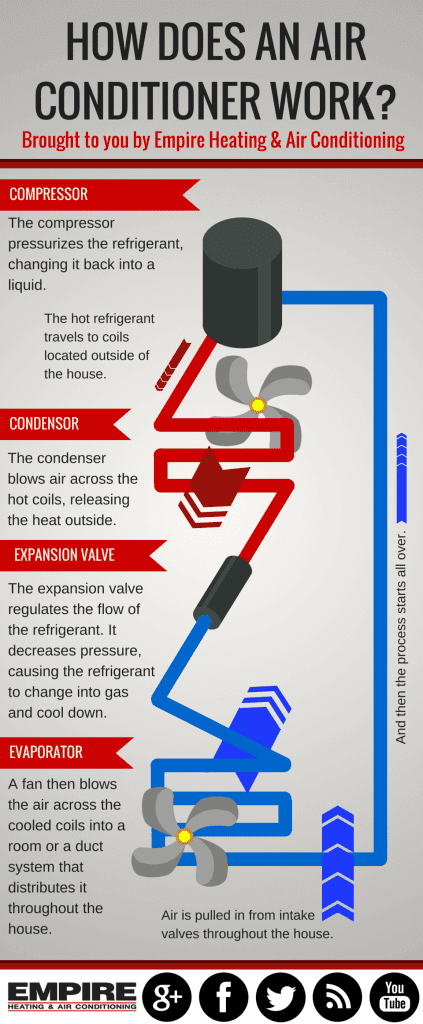Discovering The Environmental Benefits Of Heat Pumps - A Lasting Heating Service
Discovering The Environmental Benefits Of Heat Pumps - A Lasting Heating Service
Blog Article
Created By-Forsyth Stampe
In an era where sustainability and energy efficiency are paramount, numerous businesses look for environment-friendly heating remedies. One such service is the heatpump.
A heatpump removes the heat in its surroundings and pumps it right into your home, resulting in among the most effective environmentally friendly main heater around. This procedure additionally produces absolutely no greenhouse gas discharges, making it an extremely lasting technology.
Power Effectiveness
Heat pumps are extremely energy reliable and require little upkeep. They make use of less electrical energy than other heating unit and are without a doubt the most eco-friendly. They work well with rooftop solar and can often spend for themselves in utility savings alone.
They can likewise provide cooling, which is wonderful for garage workshops, attic hangouts and perk spaces, and home enhancements without prolonging the existing ductwork. They can even be utilized for retrofits in existing homes with hydronic (water-based) distribution systems such as low temperature radiators or glowing floorings.
Search for versions with SEER and HSPF scores that meet or surpass copyright's minimum requirements, as well as the criteria in your area. Greater ratings indicate higher effectiveness, which saves you cash in the long run and minimizes your carbon impact. You may even get discounts and rewards! The best devices are those with a ground warm exchanger for added effectiveness. These devices can soak up thermal power from the ground during the winter and extract it in the summer.
Minimized Greenhouse Gas Emissions
Heat pumps operate on electrical power and essentially move warm from the air, even when it's chilly exterior. They have the ability to extract the cost-free warmth trapped in air bits and move them inside your home, minimizing moisture while doing so.
Contrasted to gas heating systems, modern heat pumps use less than one kilowatt of electrical energy per kilowatt of heating power they generate. This makes them the most power effective heating choice available with a POLICE (Coefficient of Efficiency) of 4 or even more. By lowering the demand for fossil fuels, heat pumps help reduce greenhouse gas emissions and cut other significant air toxins.
Building decarbonization is a global essential, and the HVAC field is a crucial vehicle driver of that process. Whether it's investor making web zero dedications, policy makers establishing discharges limitations, or tenants requiring greener spaces, electric heatpump are being recognized as an essential service. They are a cost-effective way to minimize carbon discharges by removing the requirement for fossil fuels in structures.
Flexibility
Heatpump can be used in lots of types of homes and structures-- with or without air ducts. They work with hot-water radiators, air-conditioning and programmable thermostats. They can change heaters or be set up in brand-new homes. They can work on photovoltaic panels, geothermal systems and even district home heating sources like wastewater.
They're fantastic at providing even more heat per power unit. For visit the up coming internet site , an air-source heat pump produces approximately three or more home heating devices from each electricity unit it takes in.
Obtaining the most from your heatpump will certainly rely on your climate zone and quality of insulation. Look for designs with ENERGY celebrity ratings and compare their SEER or HSPF specifications. In warmer climates, concentrate on SEER; in chillier areas, take into consideration a system with a greater HSPF ranking. Additionally, purchase air securing and insulation to lower the load on your heatpump. That will enhance energy performance and assist you reach your Internet Absolutely no objectives faster.
Biomass Boilers
Biomass central heating boilers use timber pellets, chips or logs to develop heat and warm water. They are an excellent selection for off-grid homes or those that want to leave the gas grid.
As a standalone heating system, biomass can offer adequate energy to keep your home cozy throughout the year without the typical warm drop off of other renewable innovations. They can additionally be used together with photovoltaic panels to maximise cost savings and take advantage of RHI repayments.
A drawback of these systems is the in advance cost and routine fuel distributions. Typically, pellets will certainly require to be blown into a gas store utilizing a vacuum system or they can be by hand fed into the central heating boiler with a hopper. Logs are typically self-sourced from nearby woodland or acquired wholesale. As well as this, they require hand-operated loading and might require cleaning often.